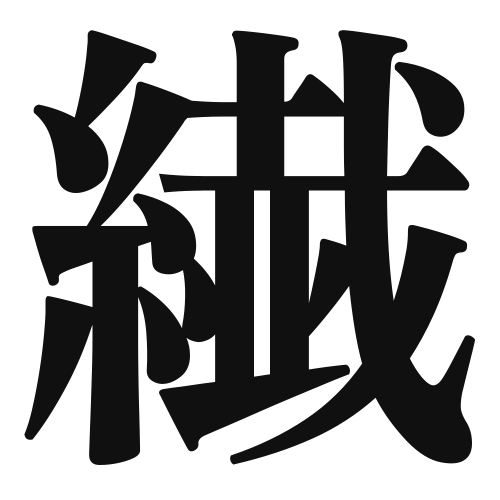1. Overview of Meaning
The kanji “繊” (sen) generally means “fine” or “delicate.” It is often used to describe things that are thin, subtle, or intricate, particularly in the context of textiles and materials.
2. Formation and Radical
Formation of the Kanji: The kanji “繊” is a phonetic compound (形声文字) that combines the radical for “thread” (糸) with a phonetic component that suggests its pronunciation.
Radical: The radical of “繊” is 糸 (ito), which relates to threads and fibers, emphasizing its connection to textiles.
3. Examples of Usage
Common Words and Phrases: Some frequently used words that include “繊” are 繊維 (sen’i – fiber) and 繊細 (sensai – delicate).
Example Sentences in Daily Conversation:
- この布はとても繊細です。 (This fabric is very delicate.)
- 繊維の種類によって、服の質が変わります。 (The quality of clothing changes depending on the type of fiber.)
4. Synonyms and Antonyms
Similar Kanji: A similar kanji is 細 (sai), which also means “thin” or “fine,” but it can refer to size or detail in a broader sense.
Opposite Kanji: The kanji 太 (tai) means “thick” or “fat,” serving as an antonym to “繊” in terms of thickness or robustness.
5. Cultural and Historical Background
Connection to Japanese Culture: The concept of delicacy is highly valued in Japanese culture, especially in art, cuisine, and craftsmanship, where attention to detail is paramount.
Proverbs and Idioms: One relevant proverb is “繊細な心” (sensai na kokoro), which means “a delicate heart,” often used to describe someone who is sensitive or empathetic.
